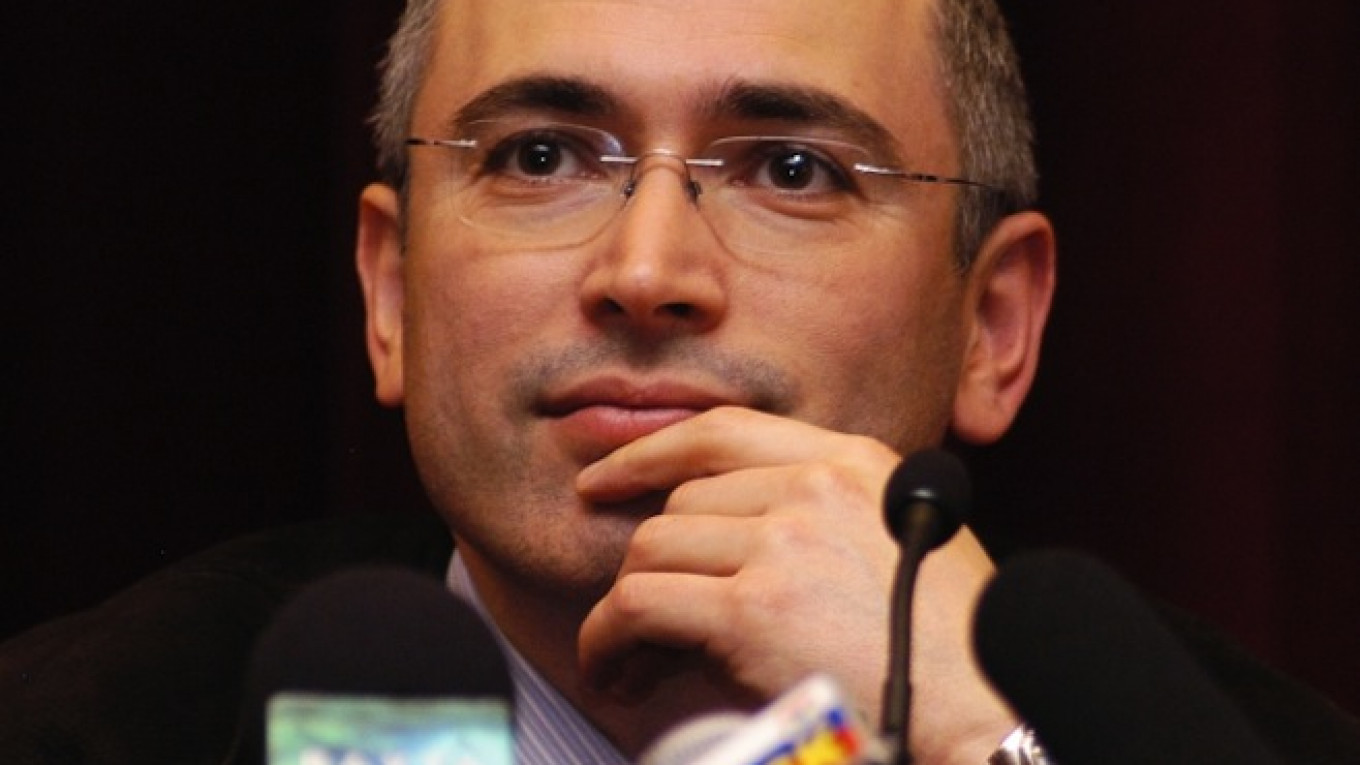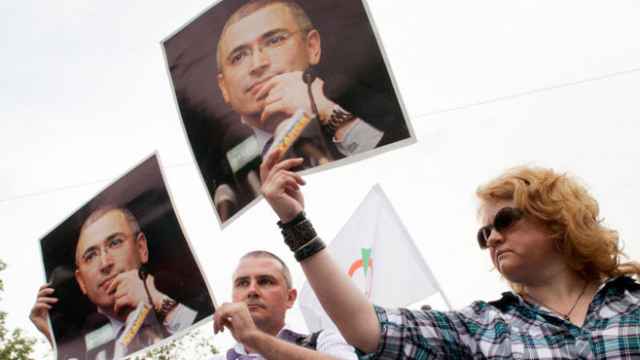BERLIN — Freed former tycoon Mikhail Khodorkovsky has said he has no intention of founding a new political party or standing in Russian elections, but wanted his "Open Russia" movement to support fundamental change.
Khodorkovsky was pardoned by Russian President Vladimir Putin last December after 10 years in jail for fraud and tax evasion, in a case his supporters say was politically motivated. The former energy magnate has since based himself in Switzerland.
He announced in Paris last weekend that he would relaunch the "Open Russia" foundation he founded in 2001 before his arrest, and which aims to foster civil society.
Speaking in Berlin on Tuesday, he said he would not campaign for Putin's removal but would rather push for change to the entire Russian political system.
"Of course, it is unrealistic to take part in elections because they would not be free or fair," he said. The Russian leadership would never allow such a party to stand, he added.
"It is not about switching individual people but rather the system."
Speaking about Western sanctions against Moscow for its policy on Ukraine, Khodorkovsky said a "serious mistake" had been made in labeling the measures "anti Russia" rather than specifying they targeted individuals and companies who have "acted very wrongly," state-run RIA Novosti reported.
"People feel humiliated," he was quoted as saying.
Khodorkovsky also blamed Putin for placing ever greater restrictions on Russia at home and for adopting an aggressive foreign policy. "He has stirred the ghost of nationalism, in order to fight his sinking popularity ratings."
While Putin did not have any further plans for Russian expansion, he maintained, the "nationalists wanted blood."
Khodorkovsky warned Moscow not to squander the country's wealth, saying its oil and gas sales-based economic model was no longer working and rich Russians were emigrating.
Khodorkovsky's Yukos business was once worth $40 billion and pumped two percent of the world's oil. It was broken up and nationalized after his arrest in 2003. Most of its assets are now owned by Russian state oil major Rosneft.
Allies say Khodorkovsky's imprisonment and the subsequent dismantling of his business empire were caused by his funding of Putin opponents and his public allegations of state corruption, which the Kremlin denies.
His jailing was seen by many as sending a warning to Russia's big businessmen to keep out of politics and ushering in a new era of Kremlin capitalism in which Putin's associates prospered.
Material from The Moscow Times was included in this report.
A Message from The Moscow Times:
Dear readers,
We are facing unprecedented challenges. Russia's Prosecutor General's Office has designated The Moscow Times as an "undesirable" organization, criminalizing our work and putting our staff at risk of prosecution. This follows our earlier unjust labeling as a "foreign agent."
These actions are direct attempts to silence independent journalism in Russia. The authorities claim our work "discredits the decisions of the Russian leadership." We see things differently: we strive to provide accurate, unbiased reporting on Russia.
We, the journalists of The Moscow Times, refuse to be silenced. But to continue our work, we need your help.
Your support, no matter how small, makes a world of difference. If you can, please support us monthly starting from just $2. It's quick to set up, and every contribution makes a significant impact.
By supporting The Moscow Times, you're defending open, independent journalism in the face of repression. Thank you for standing with us.
Remind me later.






